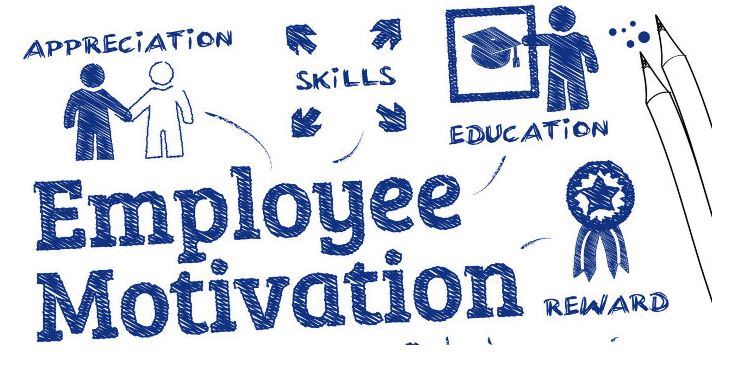Employee Motivation: Role in Modern Management
Modern Management and Employee Motivation – Most of the organizations’ performance today relies heavily on the current dynamic change in technologies and quality of the employees to deliver on the assigned duties (Abid, 2015). Therefore, due to the technical requirement for service delivery, there is the need for the respective companies to initiate and promote morale to encourage performance in production. Indeed, the studies show that a motivated employee delivers the best to the expectation of the respective company (McCaffer, 2013).
Thus, motivation is a process that influences and induces an individual to work harder and efficiently to achieve the company’s objectives. However, the company can only achieve its target by embracing a democratic working environment that allows the views of the majority employee to thrive (Abid, 2015). For instance, the employees must be listened to, and their views taken into consideration for better results of the company. Therefore, the following few steps can help motivate the employee to work hard, diligently and yield good results for the company.
The first step in motivating the employees requires that the employer carries a proper assessment audit on the ability and the performance of the employees, and therefore rewarding based on their results (Reinholt, 2011). In fact, if the assessment is true, then it will promote an individual employee to work harder to maintain and improve their rating. For instance, the studies show that better-remunerated employees have confidence in their work regardless of their working condition (McCaffer, 2013). Hence, the management of such a company is relieved of the pressure that emanates from competitors.
Secondly, the management should also consider the working environment for the employees. In most cases, there is the need for the management to embrace a democratic leadership that allows all the views for the employees in the decision-making process.
In fact, this makes them feel privileged to be part and parcel of the company. However, to achieve this kind of strategy, there is need to have efficient communication, good language tones, and etiquette. Indeed, this is the most vital part of the management practice (Sennewald, 2003).
Lastly, modern companies are faced with enormous challenges to competition, unstable currencies that pose liquidity problems to companies and firms as well as the unpredictable weather patterns (Reinholt, 2011). However, due to the above challenges, most companies fall short of the right labor force that can provide the skill to match the problems that the companies face. In fact, for those employed, tend to feel overstretched in terms of their performances. Hence, it becomes wise for the management to enhance their moral by initiating learning programs and workshop that would train them to face the problems that exist and handle them effectively (Abid, 2015).
In conclusion, in today life, most companies and firms are faced with enormous challenges that affect their productivity and profitability. However, these are problems that are inherent to the fact that most companies do not embrace democratic leadership, but rather they consider authoritarian; where the managers are the final say to the company’s progress.
On the contrary, it is wise to embrace democracy so as to help compete with other companies and improve the performance in terms of profitability and productivity. However, it can only be achieved through employees’ motivation. For instance, by offering reasonable salaries and allowances, initiating training and workshop programs and enhancing proper communications skills according to the ranks. Therefore, the employees must feel that they are part and parcel of the company for the better results to come.
References
Abid, S. U. (2015, August 9). The Impact of Rewards on Employee Motivation, the Mediating role of Office Design: Empirical Evidence from Hotel Industry of Pakistan. IOSR Journal of Business and Management IOSR-JBM, 46-51.
McCaffer, F. H. (2013). Modern Construction Management. (7th, Ed.) Chicester: Wiley.
Reinholt, T. P. (2011, December 1). Why a Central Network Position Isn’t Enough: The Role of Motivation and Ability for Knowledge Sharing in Employee Networks. Academy of Management Journal, 1277-1297.
Sennewald, C. (2003). Effective security management. (4th, Ed.) Amsterdam: Butterworth-Heinemann.
Relevant Posts
HR Metrics and Workforce Analytics
Did you find any useful knowledge relating to modern management and employee motivation in this post? What are the key facts that grabbed your attention? Let us know in the comments. Thank you.


thank you for providing information as employee motivation and playing an important role in today’s modern management
Thank you for the positive feedback.